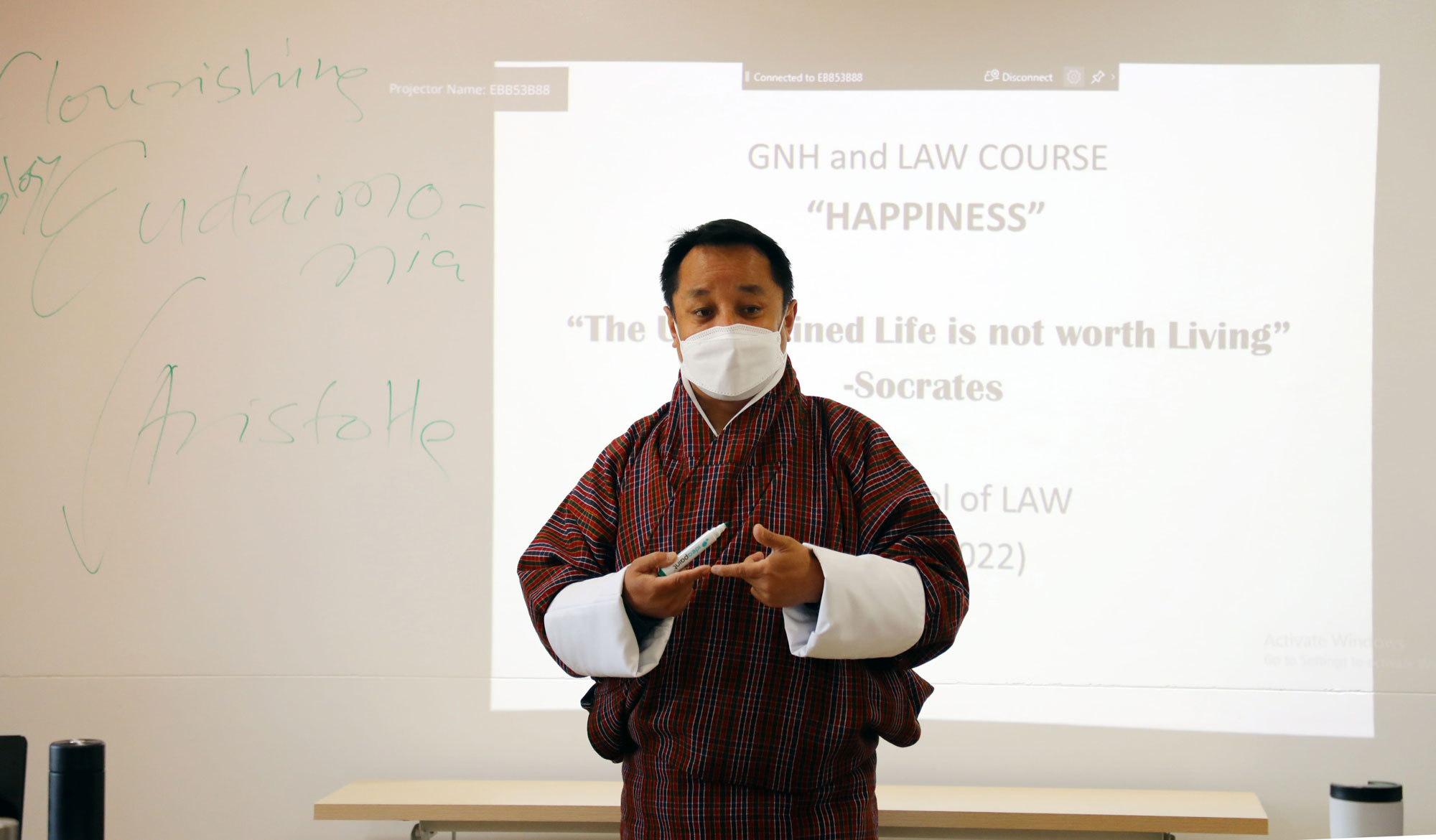JSW Law’s curriculum and program of study are guided by the four pillars. Both teaching and learning are guided by these pillars. The addition of new courses and review of the existing courses are also guided by these pillars. More importantly, the undergraduate and postgraduate students are offered elective courses specifically designed to fit within these four pillars of the JSW Law’s curriculum and the program of study. These pillars help students choose electives that best fit their interests and potential careers.

Law, GNH & Sustainability
Interdisciplinary exploration of the relationship between law, happiness, environment, climate issues, development, and conflict management and resolution.

Law, Commerce, Business & Trade
Preparing lawyers to manage and solve issues concerning growing domestic and international commerce, business, and trade.
Clinic & Experiential Education
All undergraduate students must take up required clinical programs, and assessed internship programs, to allow students to develop real-world experience, and make students service ready.
Focus on Research & Writing
Heavy focus on research and writing skills—most courses require writing research papers, supervised by relevant faculty members. At JSW Law, we encourage and support student writing for both academic credit and publications.
International & Global Connections
Teaching and learning, and other academic work incorporate international perspectives—opportunities to engage in regional, international, and comparative law studies.
Customary & Indigenous Perspectives
Connecting the law to society, past, and the traditional way of life and regulation, to instill in future lawyers the respect for different legal orderings that exist within our society (legal pluralism).





